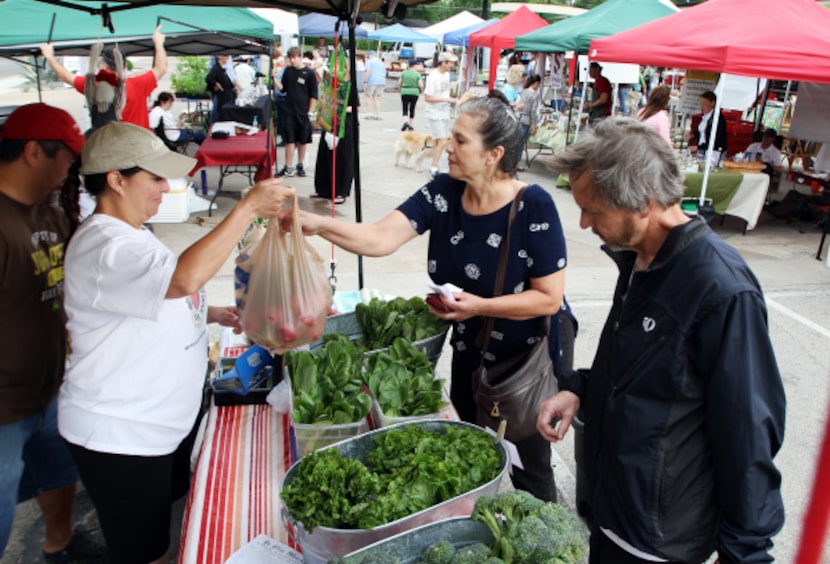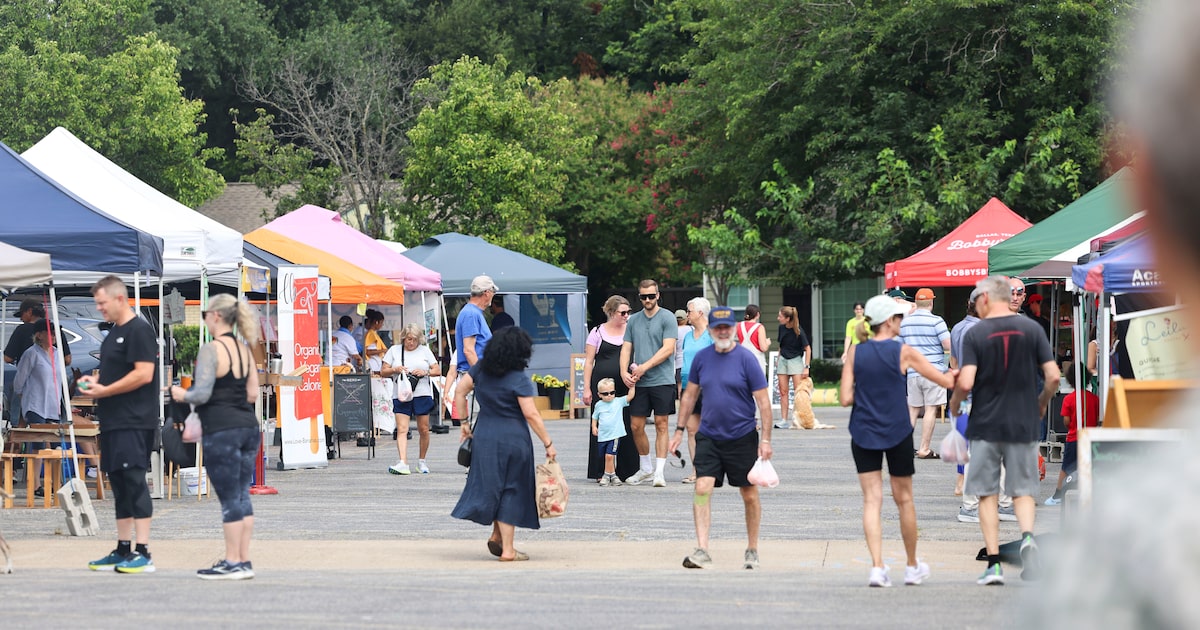Two Dallas farmers markets are facing uncertain futures due to a loss of funding for the nonprofit that runs them.
Good Local Markets, which is behind the White Rock Local Market on Saturdays and the Lakewood Local Market on Sundays, recently lost critical donations it relied on to operate the markets, said its executive director, Lisset Bell.
“I’m assuming it’s because of the political climate and the current economy,” Bell said. “We’ve gotten a good amount of rejections, specifically from those we’ve relied on and counted on for years.”
Bell, who took over the nonprofit this year, said the loss of funding means they will likely have to shutter the Lakewood market and strip the White Rock market down to what can be managed by volunteers.
Eat Drink D-FW
The Lakewood market runs until Nov. 23, so providing there is no change in funding, it will not reopen again in the spring, she said. She is committed to finding a way to continue the White Rock market, though, regardless of resources.

White Rock Local Market is one of two markets run by Good Local Markets, which started in Dallas in 2009.
“We are all very eager to come back in March,” she said. “My plan is, even if it has to be on a volunteer basis, to bring back the market in March.”
Longtime vendors said their small businesses would suffer without the East Dallas markets.
Dawson Mehalko was 12 years old when he started his farm, Jubilant Fields, in Trenton. Eight years later, it’s now his full-time job, largely thanks to joining Good Local Markets in 2022, he said.
“It was my launching off point to really establish my business,” Mehalko said. “If it were to close, it would be half of our revenue gone.”
Getting a spot at Good Local Markets is a prize, he said. Good Local Markets, which first started in 2009 and works with more than 100 vendors, is notoriously stringent in its approach to who can set up a booth and what they can sell. Vendors must be located within a 150-mile radius of the markets, and they must directly grow, raise or produce everything they sell.
“It really is the premium market that is producer-only,” Mehalko said. “They ensure a fair environment, which means a lot for myself and all the other vendors at the market.
“It makes it worthwhile to be there because I know I’m not trying to sell my locally grown stuff next to stuff that has been shipped in from Arizona or California and that’s being passed off as being locally grown.”
Mehalko said it’s been a difficult year for nonprofits, especially in the agriculture sector. He knows of many small farms that have been impacted by grant cutbacks. While his farm has been spared from such cuts, a reduction in business from Good Local Markets will thwart his plans to expand his farm, he said.
Erika Radtke, who co-owns cottage bakery Girl with Flour, said Good Local Markets makes up a significant portion of its sales.
“There are so many small businesses and so many families that rely on this market,” Radtke said. “I think it would be harmful for the Dallas food community for that to go away.”
Nate Thomas, who owns Sandcastle Seasonings, said getting his spice blends in front of customers at Good Local Markets grew his business from one he and his wife ran out of their garage to a professional operation with a facility.
“Without Good Local Markets, I don’t think I could keep the lights on,” Thomas said. “Even diminishing what [these markets] have built over almost 20 years would be a terrible, sad loss for the city of Dallas.”
Thomas said the farmers markets, which are a food source for many including people who rely on SNAP and WIC programs, are also a key part of community culture. They provide a free place to socialize, listen to live music and watch live cooking demonstrations.
“This is one of those third places we as Americans are being deprived of,” Thomas said. “A farmers markets is a lifeblood of a community. This isn’t going to Target or Albertsons. It’s not transactional, it’s personal. It’s not a luxury, it’s important. And it’s something our community needs.”
